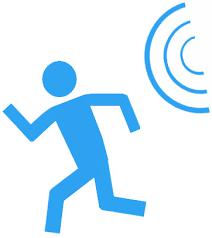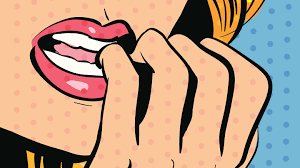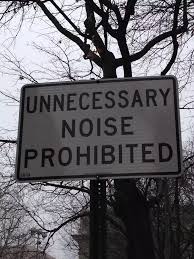 Stephen Geller Katz LCSW-R
Stephen Geller Katz LCSW-R
Misophonia Cognitive Retraining Therapy
 Stephen Geller Katz LCSW-R
Stephen Geller Katz LCSW-RMisophonia Cognitive Retraining Therapy
Misophonia Cognitive Retraining Therapy, as featured on the MTV True Life episode: “I Have Misophonia” premiering Friday, December 16th, 7:00 PM EST. See Clip >
|
|
|
| Moderate to severe anxiety triggered by chewing sounds, including: | ||
|
|
|
You may also be affected by visual stimuli, such as repetitive foot or body movements, fidgeting or movement you observe out of the corners of their eyes. Intense anxiety, rage and avoidant behavior may develop as a result of misophonia.
 * Do you feel your family and friends don’t understand how much you suffer?
* Do you feel your family and friends don’t understand how much you suffer?
* Do you often feel you can just suffer through a social event where there is eating present only to find that you must “escape” before you have a panic attack?
* Do you find that some people are at first understanding and make some efforts not to make the triggering sounds in front of you, but soon forget and constantly have to be reminded, causing you to feel angry, anxious and depressed?
* Are you avoiding social activities that you enjoy because of the misophonia?
* Are you fearful of losing your job and/or is the misophonia effecting your job performance?
You may be a candidate for Misophonia Cognitive Retraining Therapy, or MCRT.
Stephen Geller Katz, LCSW-R, with over 20 years of clinical experience, a New York University graduate, developed Misophonia Cognitive Retraining Therapy and founded Misophonia Cognitive Center™ in response to the growing number of people with Misophonia coming to his private practice from audiologists and ENTs. He discovered that by helping people to retrain and reinterpret the thoughts around their Misophonia, anxiety and depression symptoms began to improve. But even more important so did the Misophonic trigger response.
How do you relieve misophonia symptoms? While it may feel like misophonia is not controllable, you’d be surprised to learn that there are certain ways to manage it. You don’t always have to go to a doctor for the treatment. You can get help with exercising and doing something as simple as listening to white noise. This piece will delve into the strategies and tips to cope with misophonia symptoms.
If you believe you suffer from misophonia, consider finding others who also suffer from this condition. This condition can make sufferers isolated and may even result in depression and anxiety down the line. Some people even start avoiding social situations with a chance of encountering triggering sounds. Common places where people with misophonia avoid going to include:
Believe it or not, even virtual meetings can have certain sounds that could trigger individuals with misophonia. The sound of filing fingernails or slurping on noodles can trigger people with this condition, making them want to leave right away.
While there is minimal information regarding how many individuals have misophonia, people can find support online and offline. Platforms like Instagram, Reddit, and Facebook, in particular, can be quite handy for people suffering from this condition. Reading or listening to how other people deal with this condition can offer you some validation, helping you feel pleasant.
Moving around can help people prevent misophonia related triggers to a certain extent. It would help if you also tried walking, hiking, or running to enjoy plenty of physical and mental health benefits. Improved respiration is another advantage of regular physical activity.
You can take up activities like meditation, yoga, sprinting, etc., to calm yourself down and control triggers more effectively.
A little bit of white noise can be massively helpful. Something as simple as the humming, a dishwasher, or an aromatherapy diffuser can distract your attention from unpleasant sounds. However, if your house is too silent, it would be best to invest in ceiling fans or white noise machines. Keeping these devices on is an excellent way to divert your attention from sounds that you don’t find pleasant and will help you focus on what you are doing.
Some people feel like misophonia triggers are unavoidable, and there is no other option but to live with them. While that may be true to a certain extent, you can do a few things to keep the triggering sounds at bay. For instance, if you know that some places have heavy triggers, consider avoiding them if the people in charge cannot do anything to take care of them.
It also helps to dedicate some time to rest your brain daily, including simply being alone, listening to white noise, walking, or doing anything that soothes your brain. Sure, all of this is easier said than done, but starting on the right note is important. The more you practice, the better you will become at keeping the triggers at bay.
Misophonia can greatly affect your quality of life if you do not take steps to treat it. While you can do certain things on your own to manage the symptoms, consulting a professional is the best thing to do. That is where Stephen Katz can help relieve your misophonia symptoms. Dr. Katz is a world renowned expert in diagnosing and treating misophonia.
Contact the Misophonia Cognitive Center™ to schedule a online consultation.
Stephen Geller Katz LCSW-R
646-585-2251
Tele-Video Sessions
Speaks 5 languages
International Patients Welcome
Do certain sounds make you angry? Do you become anxious, irritated, or angry when you hear familiar sounds? If so, there is a good chance that you have misophonia. This condition is a lot more than becoming annoyed at certain sounds. Individuals with this condition often suffer from high levels of emotional and mental distress, so much so that they often try to restructure their lives.
Simple things like finger tapping, breathing, and chewing food or gum can become a massive annoyance for people with misophonia, resulting in physical and emotional discomfort.
This condition is when people experience negative emotional and physical reactions to particular sounds. More often than not, these are everyday sounds that people are exposed to every day, like:
Misophonia tends to affect most people differently. However, certain emotional and physical signs are experienced by most people suffering from this condition. As mentioned abundantly, people exhibit symptoms of this condition because of certain sounds that include repetitive oral or nasal sounds by pets or people.
Sounds such as drawers and cabinets closing and opening, ticking clocks, etc., can also trigger people with this condition. People with misophonia also experience different emotions as a response to upsetting sounds. These emotions include:
Unfortunately, misophonia also impacts how people with this condition live and may result in certain physical symptoms like:
Some people even become hyper vigilant when they aren’t sure when they will hear a sound or when certain noises will trigger a reaction. If you think you fall in this category, it would help to get in touch with a doctor as soon as possible.
Since there isn’t any cause behind misophonia so far, it isn’t confirmed whether this condition is psychological or physical. An experimental study showed that various brain parts in people with this condition become active after listening to certain sounds. However, people who didn’t have this condition didn’t have any response.
Contrary to popular belief, misophonia does not have any link with autism and isn’t an autism spectrum disorder symptom. That said, some people with autism experience lower sound tolerance.
First, this condition is not an anxiety disorder, and it isn’t an anxiety symptom either. However, people suffering from misophonia sometimes react with symptoms of anxiety when exposed to sounds that trigger them. Also, since this condition affects everybody differently, some people have angry reactions while others do not.
While some people may become aggressive after listening to certain sounds, others may become afraid or avoidant. Whatever the case, it is important to note these symptoms to ensure you can get the right treatment before things worsen.
Unfortunately, misophonia often gets diagnosed in thousands of people, and they only learn about it when it gets really bad. If certain sounds make you angry, anxious, or avoidant, seek help immediately.
Stephen Katz LCSW is a misophonia treatment specialist and is well aware of how misophonia can get in the way of people’s daily routine and affect their private and social lives. If you think you or someone you know has this condition, please contact us and let Dr. Katz evaluate your symptoms and suggest a suitable treatment.
Stephen Geller Katz LCSW-R
646-585-2251
Tele-Video Sessions
Speaks 5 languages
International Patients Welcome
What is the relationship between misophonia and anger? There are certain complications associated with misophonia that resemble other disorders and conditions. It is a condition in which the affected person has a low tolerance against particular sounds. The sound tends to instigate adverse reactions in the affected person.

The reactions may vary, from worry and feeling uncomfortable to getting physically aggressive and angry. It can affect the normal life and routine as the affected person will carry anticipatory anxiety regarding the sounds and the consequent reactions.
Misophonia can detach a person from their social life to a great extent. When others make sounds such as chewing loudly, breathing heavily, sniffling, wheezing, etc., it can trigger a reaction from the misophonic people hearing it. The reactions are usually negative, such as the sudden need to flee or do something aggressive to make the sound stop. In many cases, a person may experience a fight or flight response that can lead to severe complications for them and others.
There aren’t enough research and scientific studies when it comes to misophonia. People with this condition isolate themselves from friends, colleagues, peers, family, and even spouses. Other times, some people feel embarrassed in sharing their issues. Overall, misophonia is a prevalent condition in different age groups. From anger to anxiety and manic depression, misophonia can convert many sounds into serious reactions due to intolerance.
What’s the brain science behind misophonia? How do certain sounds change a person’s mood? What’s the effect of sounds on the brain? You may think that misophonia is similar to tinnitus. Most people tend to assume that because tinnitus also isolates a person and leaves them socially disturbed. However, tinnitus refers to ringing or similar sensations in the ear, which vary in frequency.
Moreover, some researchers and experts believe that misophonia might have a connection to hyper-connectivity between the brain’s limbic and auditory systems. This may be true considering hyper-connectivity refers to excessive connections between the neurons that control emotions and hearing in the brain.
A study shows that after hearing the misophonia trigger sounds, an affected person’s AIC (anterior insular cortex) suffers from excessive responses. AIC is the part of the brain that processes and regulates emotions. In effect, the study shows there is high connectivity between the default mode network and the AIC in the brain of the misophonic patient. This prompts associations and memories. Furthermore, higher myelination in the nerve cells of specific brain parts could lead to greater connectivity.
Talking about the sounds and how they affect a misophonic person, pay close attention to all the symptoms and signs of this condition. The key features of a patient’s reaction include aggression, anger, or any extreme reaction towards the source of the trigger sound (usually a person). The severity of the condition varies from person to person. Therefore, some people may only feel uncomfortable while others will flee or feel enraged. If a person has misophonia, the symptoms appear from an early age, like adolescence or teenage. Still, the condition is prevalent in both males and females.
Although the person may initially have a single trigger sound, the number of trigger sounds can increase depending on the severity and progression of the condition. The common concept is that misophonia people see particular sounds as highly disturbing and experience a series of reactions that makes them feel they are losing control. Here are some of the symptomatic responses of misophonic people:
In reality, the thought of hearing trigger sounds can initiate negative responses and strong stimuli in the brain of the affected people. They experience symptoms such as depression, anxiety, and neuroses more than others. Emotional responses are not the only signs that appear in misophonic people. Certain physical reactions can take place when a misophonic person encounters a trigger sound. Those include the following:
Furthermore, it is worth mentioning that you may notice OCPD (obsessive-compulsive personality disorder) symptoms as this condition accompanies misophonia.
Do you think that your misophonic condition is getting worse? Do you find yourself getting extremely angry due to trigger sounds and visual stimuli? It is important to acquire the best treatment options for misophonia to minimize your reactions and adverse thinking pattern.
Stephen Geller Katz LCSW-R at the Misophonia Cognitive Center™ helps patients solve their complications with this and other sound disorders. With years of experience successfully treating patients, he is a renowned specialist in NYC.
Call us today at 646-585-2251 to schedule an easy online session.
MISOPHONIA COGNITIVE CENTER™
Stephen Geller Katz LCSW-R
19 West 34th Street
Penthouse Floor
New York, NY 10001
646-585-2251
Reference Links
https://www.nature.com/articles/s41598-019-44084-8#:~:text=Misophonia%20is%20a%20condition%20in,and%20physical%20arousal2%2C3
https://www.health.harvard.edu/blog/misophonia-sounds-really-make-crazy-2017042111534
https://www.webmd.com/mental-health/what-is-misophonia
https://www.bbc.com/news/health-38842561
Do certain sounds make you angry? A person suffering from misophonia gets angry whenever they hear common, everyday sounds, such as someone eating or breathing. The sound of such activities triggers your fight-or-flight reaction. As a result, you avoid restaurants, parks, and other public places. The reason? You feel that you can’t control your emotions in these spaces. People suffering from misophonia have shared that when they hear continuous sounds such as tapping or chewing, they felt like they were going to die. In fact, normal people may not even notice the sound, but because of the condition, your ears may become sensitive to such sounds.

(Source)
According to various researches, misophonia is an autonomic and unconscious response of your nervous system. Professionals concluded this after analyzing people’s reactions to sounds. These people are sensitive to sound. Studies also suggest that alcohol and caffeine can make the condition worse (Source).
Misophonia is a disorder that emotionally affects you because of the triggering sounds. These sounds may be unnoticeable and common for others, but they give you a hard time when you’re trying to listen and tolerate. The sound that triggers your emotions and increases the desire to escape includes yawning, breathing, or chewing.
This condition does not include a lot of research, and doctors cannot yet tell how common this condition is. The severity of the symptoms varies from one person to another. People with misophonia are not expressive. They prefer to stay in isolation rather than mentioning things to others or doctors. Because they feel embarrassed about developing this condition, they hide it. That is why many doctors and other health care providers do not know about the condition.
Keep in mind that misophonia is a serious condition that limits your quality of life, social life, functionality, and mental health. Most people develop this condition at the age of 12, and the severity of the condition increases over time.
With little research, professionals are unable to find the actual cause of the condition. However, some factors affect the development of this condition. Here are a few of those factors:
People suffering from Tinnitus often develop Misophonia. In Tinnitus, they continuously hear ringing or clicking sounds in the ear. This leads to intolerance of similar sounds from external sources. Tinnitus is a genetically transferred condition that affects your tendency to hear sounds. There are numerous underlying conditions for the development of Tinnitus, including trauma, injury, or an infection.

(Source)
According to some experts, Misophonia relates to the anterior insular cortex or AIC. This region of the brain is responsible for processing emotions. Also, when your auditory cortex does not normally function and increase communication with the auditory organs, some sounds become more prominent than others. Consequently, irritating sounds seem louder and more apparent.
Misophonia is a genetic condition that can run in the family. The genetic component of this condition increases the chances for you to develop the condition.
Many other conditions, including Tourette syndrome, obsessive-compulsive disorder, and anxiety disorders, can cause misophonia. The hypersensitivity in this condition will cause a fight and flight response.
The condition can trigger feelings of stress. Because of this, you may prefer to stay in isolation to avoid irritating sounds. While many people find chewing sounds annoying, people with misophonia feel fury and rage when someone makes such a sound near them.
Normal sounds, such as the clicking of a pen, can irritate you if you deal with misophonia. When you experience the problem, you may want to scream and run from the situation or try to make the noise stop with rage. This condition can cause daily irritation leading to anxiety and depression. You will find it hard to live your life to the fullest.
Suffering from misophonia means you can react to relatively small sounds & behaviors. Your reaction starts with irritation because of the sound, and it instantly turns into anger and rage. You will feel like shouting and become verbally and physically aggressive. Here are some physical reactions that you might experience caused by misophonia. The reactions include:
According to Dutch researchers, here are some common triggers of misophonia:
As you can see from the above percentages, eating sounds many people with misophonia finds eating sounds irritating.
People suffering from misophonia will start experiencing the symptoms of the condition at an early age. It starts with one sound, and over time, you feel irritation with other sounds as well. The reaction to the sound can be intense or excessive.
This affects your feelings, and you can lose control. Misophonia is a chronic condition usually triggered by other conditions. Misophonia can lead to mental illness and isolation, leading to depression and stress. If you want to visit a professional and control your symptoms, simply contact our clinic at 646-585-2251.
 Misophonia is a neurological auditory (sometimes visual) condition that causes extreme irritation and annoyance towards sounds produced by ordinary human actions like chewing. The central nervous system of a misphoniac’s brain tends to misinterpret and has trouble processing specific sounds.
Misophonia is a neurological auditory (sometimes visual) condition that causes extreme irritation and annoyance towards sounds produced by ordinary human actions like chewing. The central nervous system of a misphoniac’s brain tends to misinterpret and has trouble processing specific sounds.
Misophonia is not a psychiatric disorder, it is a form of anxiety. It causes one to panic and become anxious. It is mostly auditory but sometimes it even involves visual triggers. Meaning,not being able to resist the sight of constant and repetitive actions.
For example, nodding of head or jiggling of foot. It can also be both audio-visual. As in, looking at someone snapping their fingers non stop and hearing the sound of the snaps at the same time. People who have this condition typically have excellent hearing skills and are very sensitive to sound and its volumes. To sum up what it feels like, imagine someone scratching the wall with their sharp finger nails. The sound produced by this action makes the sufferer’s blood boil and gives them goose bumps.
Some of the most common signs and symptoms of misophoniainclude not being able to toleratethe sound at all and wanting to flee the scene. Aggression towards the origin of the sound and expressing discomfort by angrily telling them to stop. Mimicking the same sound in an attempt to block it out. The intensity of reactions can vary tremendously; some may try to sit through it and distract themselves by listening to songs.
Some can even go the extent of skipping parties, important social gatherings and avoiding any social contact altogether, which can make it harder for them to achieve goals and enjoy interpersonal interactions.
 People usually start showing symptoms in their late childhood or early teenage. However, it can be developed in both males and females at any age. People with Misophonia know that the intensity of their reactions is excessive and sometimes they also feel like everything is falling apart and that they are losing control. Another major symptom that can be prominently seen in individuals with Misophonia is the fact that when they try to look for solutions and simply think about encountering the triggering sounds, they feel stressed out and anxious. Just the thought of it gets them all sweaty.
People usually start showing symptoms in their late childhood or early teenage. However, it can be developed in both males and females at any age. People with Misophonia know that the intensity of their reactions is excessive and sometimes they also feel like everything is falling apart and that they are losing control. Another major symptom that can be prominently seen in individuals with Misophonia is the fact that when they try to look for solutions and simply think about encountering the triggering sounds, they feel stressed out and anxious. Just the thought of it gets them all sweaty.
Moreover, individuals suffering from misophonia also experience physical reactions including, immense pressure throughout the body, mainly the chest. Muscle tightness and fluctuating blood pressure, rapid heartbeat, and high body temperature are the reactions that can be very dangerous if not taken care of at the right time. If the heart rate and blood pressure stays high frequently and nothing is done to lower it down, then there are high chances of cardiac problems.
Cognitive behavioral therapy is a good option for misophoniacs. It helps individuals identify thought patterns that lead to certain unpleasant behaviors. If they become more self aware, they would be able to handle their emotions and triggers in a better manner. For instance, not expressing rage and explaining the problem to the noise maker instead. This will have a direct effect on their heart rate as well. Since now they would know how to be calm and avoid outbursts.
Therefore, if you have noticed these symptoms in yourself and you are not able to manage the emotional or physical reactions of misophonia on your own, then you must seek medical help as soon as possible.
To schedule and book your appointment with the best Misophonia specialist in NYC, contact us today!
Misophonia is a rare condition which is often mistaken for OCD or depression. Several doctors have failed to come up with proper solutions to get rid of this frustrating problem. However, the good news is that Dutch researchers seem to have found an answer to it! Which means it is possible to reduce the symptoms of Misophonia!
Cognitive Behavioral Therapy has clinically proven to be pretty successful for many. It is a special kind of psycho-therapy which mainly involves analyzing of one’s thoughts and feelings. Thoughts that influence and regulate your behavior. There is a whole thought process behind your actions. If you behave in an unpleasant manner or you say something harsh to someone for no apparent reason, there is a high possibility that you have spent a lot of time thinking negatively about things.
CBT is used to treat many other disorders like depression and addiction as well. Firstly, you will be asked by your therapist to be completely vocal about your thoughts, voice them out openly and then examine them. Then you will be asked to look at evidence from reality to see whether your thoughts are in support of reality or against it. By doing this exercise, you will be able to look at things rationally and objectively. This way your thought patterns can be identified and fixed.
It helps with Misophonia to a great extent.It will make you realize that your irritation and frustration is justified but it can be taken care of in a less violent way. Initially, you will struggle with your thoughts but eventually you will get there.
The ultimate goal of CBT is to teach patients that while you cannot control every little aspect of the world, you can take care of your own thoughts and emotions. You have complete control over how you interpret and deal with things in YOUR world. This behavioral therapy is highly goal oriented and if you are lucky enough to have a supportive therapist working with you, then they will make sure that you get through it until your goal has been reached.
Music Therapy is a newly discovered option to cope with Misophonia. It is not the same as listening to therapeutic songs. Your therapist will recommend you a certified clinician who is especially trained to select music for you. This therapy aims to enhance better responses to your problems. Furthermore, it will help you relax and reflect on your thought patterns, cope with stress and enhance your concentration levels. This special therapy often involves meditation exercises that will help you get calm and clear your mind.
Natural Remedies are also helpful in this regard. In addition to behavior and music therapy, you can add healthy foods to your diet. Your therapist may recommend you a sensory diet which is a blend of calming and energizing foods. These may help with misophonia regulation and auditory over sensitivity. Also, drink plenty of water and avoid GMO foods. Switch to a healthy and organic diet. Other than that, you must engage in physical activities such as swimming. Swimming will help you relax and has been known to assist regulate the sensory system. Spending time with nature is another excellent idea. Inhale exhale exercises and deep breathing after a good morning walk at the neighborhood park will surely make you feel fresher and lighter than usual.
For details about the intensity of your Misophonia, more tips and tricks and other related information, book your appointment with the best Misophonia specialist in NYC today!
 If you are one of the rare individuals who suffer with the noise syndrome known as misophonia, you are probably aware of the torment that patients go through in their daily life. Any small sound could trigger a big reaction. This syndrome can lead to significant anxiety, consistent overwhelming emotions and feelings, and even depression and suicidal thoughts. No matter how severe or mild your symptoms are, misophonia is a strongly displeasing issue to deal with every day. Living your life in fear of sound and in constant panic is no way to spend your time. If you’re new to misophonia and are wondering if your syndrome is directly connected to the development of anxiety, or vice versa, we can help you understand the nitty and gritty of the illness. The better you understand misophonia as a whole, the more you can improve your daily life and future.
If you are one of the rare individuals who suffer with the noise syndrome known as misophonia, you are probably aware of the torment that patients go through in their daily life. Any small sound could trigger a big reaction. This syndrome can lead to significant anxiety, consistent overwhelming emotions and feelings, and even depression and suicidal thoughts. No matter how severe or mild your symptoms are, misophonia is a strongly displeasing issue to deal with every day. Living your life in fear of sound and in constant panic is no way to spend your time. If you’re new to misophonia and are wondering if your syndrome is directly connected to the development of anxiety, or vice versa, we can help you understand the nitty and gritty of the illness. The better you understand misophonia as a whole, the more you can improve your daily life and future.
 The syndrome of misophonia strictly relates to the irritation and negative reactions that come after hearing or experiencing a certain noise, which we call a trigger. These sounds can be different for all individuals and usually depend on the way you were raised or what you have been classically conditioned to dislike. This means people who are affected by misophonia are likely not born with the syndrome. Because of this, it is harder to identify or pinpoint specific events that may have led to the cause of your misophonia. Undergoing therapeutic courses of treatment may help alleviate symptoms and possibly find the reason for your irritations or phobias. Dealing with misophonia is a very difficult process that should be addressed as soon as symptoms are apparent for the best results.
The syndrome of misophonia strictly relates to the irritation and negative reactions that come after hearing or experiencing a certain noise, which we call a trigger. These sounds can be different for all individuals and usually depend on the way you were raised or what you have been classically conditioned to dislike. This means people who are affected by misophonia are likely not born with the syndrome. Because of this, it is harder to identify or pinpoint specific events that may have led to the cause of your misophonia. Undergoing therapeutic courses of treatment may help alleviate symptoms and possibly find the reason for your irritations or phobias. Dealing with misophonia is a very difficult process that should be addressed as soon as symptoms are apparent for the best results.
Anxiety is defined as a disorder characterized by fears or irritants that negatively affect how a person can regularly go about their day. Most of the time, anxiety is a normal and healthy emotion, as it regulates the body’s alertness. However, some people may have more advanced stages of anxiety that cause symptoms to appear consistently throughout the day. Anxiety is a very common disorder in the world, there being over 3 million cases in the United States alone. Anxiety is a difficult illness to deal with and may be related to symptoms of misophonia.
 After studies were completed examining patients who show signs of both anxiety and misophonia, psychologists and medical providers have determined they are two separate disorders with separate triggers and symptoms. Regardless of them being different conditions, this doesn’t mean they can’t go hand in hand with another. Similar studies depicted that misophonia can lead to anxiety. Because misophonia may trigger heightened sensory states and lead to panic, it can be identified that anxiety can be a symptom of misophonia, but it is unlikely the opposite. Misophonia begins with external stimuli, while anxiety typically occurs internally. If you have misophonia and are being treated like you have anxiety, there may be better solutions to your daily suffering.
After studies were completed examining patients who show signs of both anxiety and misophonia, psychologists and medical providers have determined they are two separate disorders with separate triggers and symptoms. Regardless of them being different conditions, this doesn’t mean they can’t go hand in hand with another. Similar studies depicted that misophonia can lead to anxiety. Because misophonia may trigger heightened sensory states and lead to panic, it can be identified that anxiety can be a symptom of misophonia, but it is unlikely the opposite. Misophonia begins with external stimuli, while anxiety typically occurs internally. If you have misophonia and are being treated like you have anxiety, there may be better solutions to your daily suffering.
In order to feel as good as you possibly can in life, it is important to visit a doctor or misophonia specialist to discuss symptoms and potential treatment options. Steven Katz LCSW is one of the best misophonia treaters in New York City and can significantly improve your symptoms.
Contact the Misophonia Cognitive Center to set up an appointment and start managing your Misophonia today.
Paying attention to how your body responds to certain irritants and things you perceive as triggering is important if you want to figure out whether you’re really dealing with misophonia or a different condition. The list of symptoms typically associated with misophonia includes not only a sense of irritation – which is the most commonly reported issue – but also an array of additional, more physical symptoms. These can vary from person to person but knowing what the typical list looks like can make it easier to identify the condition in your own body.
You might feel like your body is getting squeezed in certain points when you get your misophonia triggered. The chest is the most commonly reported area, although you might also feel like some of your limbs are getting clamped down on. The pressure may or may not increase with each triggering incident, although those who do experience this particular symptom usually report that it’s present during most attacks.
 Your muscles might also feel tight all over the body all of a sudden, especially in the limbs. This is usually accompanied by the aforementioned sensation of pressure, but the two might come separately during different incidents of misophonia attacks. The feeling of tightness can be particularly troubling to some sufferers of the condition, as it can interfere with their daily lives and can make it difficult to go about their tasks while the attack is ongoing. Learning to manage these sensations is a good step towards treating misophonia and identifying the triggers for the condition can make that significantly easier, as you’ll know when to expect an attack coming on.
Your muscles might also feel tight all over the body all of a sudden, especially in the limbs. This is usually accompanied by the aforementioned sensation of pressure, but the two might come separately during different incidents of misophonia attacks. The feeling of tightness can be particularly troubling to some sufferers of the condition, as it can interfere with their daily lives and can make it difficult to go about their tasks while the attack is ongoing. Learning to manage these sensations is a good step towards treating misophonia and identifying the triggers for the condition can make that significantly easier, as you’ll know when to expect an attack coming on.
Blood pressure, and issues with the cardiovascular system as a whole, is something else to pay attention to when trying to diagnose misophonia. Many people report an increase in their blood pressure during an attack, and it may be accompanied by a rapidly beating heart and a general sensation of discomfort and unease.
These are just some of the most commonly reported physical symptoms associated with misophonia. The condition can manifest itself in many different forms among people with varying backgrounds, and it’s important to get professional help if you’re not sure what you’re dealing with exactly.